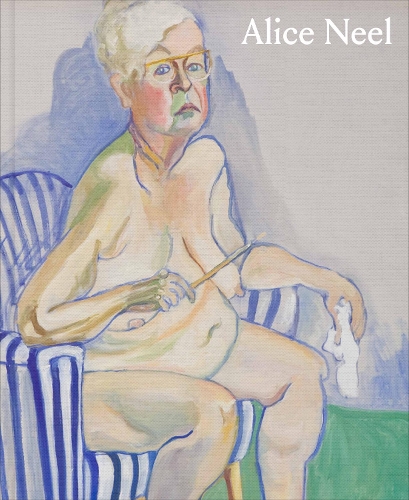
Alice Neel
(Hardback)
Publishing Details
Alice Neel
By (Author) Helen Molesworth
Foreword by Ginny Neel
David Zwirner
David Zwirner
1st May 2019
1st March 2019
United States
Classifications
General
Non Fiction
759.13
Physical Properties
Hardback
112
950g
Description
One of the foremost American figurative painters of the twentieth century, it is not surprising that Alice Neel was a humanist-she was fascinated by people. Known for her daringly honest portraits, Neel loved to paint people in all their complexities-to penetrate and reveal their fears and anxieties, how they display defiance and survival. She also loved to paint the unadorned human figure. Her nudes, in particular, explore the body with frankness while celebrating the individuality of each of her subjects, and they exemplify the freedom and courage with which she approached her work and her life. Through her paintings and works on paper, Neel was able to free herself from the expected inhibitions and crippling taboos that were placed on women and focus on the beauty and nuanced complexity of flesh and the human body. In their mastery of form, color, and implied social commentary, her nudes are as relevant today as when they were painted. Alice Neel documents the solo exhibition of the artist's work at David Zwirner in New York in 2019. Including works that span the 1920s to the 1980s, this presentation focuses primarily on the nude figure- whether male or female, adult or child-and demonstrates how Neel rebelled against and challenged the traditional perceptions of sexuality, motherhood, and beauty in our society. The catalogue includes newly commissioned scholarship by Helen Molesworth and a foreword by Ginny Neel of The Estate of Alice Neel.
Reviews
"Freedom presents paintings and works on paper by one of the most thrilling and iconoclastic American figurative painters of the 20th century: Alice Neel."--Sharmistha Ray "Ocula"
Author Bio
With a practice spanning the 1920s to the 1980s, Alice Neel (1900-1984) is widely regarded as one of the foremost American figurative painters of the twentieth century. Based in New York, Neel chose her subjects from her family, friends, and a broad variety of locals: writers, poets, artists, students, textile salesmen, psychologists, cabaret singers, and homeless bohemians. Her eccentric selection was thus also a portrayal of, and dialogue with, the city in which she lived. Through her penetrative, forthright, and at times humorous touch, her work subtly engaged with political and social issues, including gender, racial inequality, and labor struggles. Although she showed sporadically early in her career, from the 1960s onward Neel's work was exhibited widely in the United States and has since been the subject of numerous critically acclaimed posthumous presentations around the world. Helen Molesworth is a curator and writer. She has organized a number of critically acclaimed exhibitions, most recently Kerry James Marshall: Mastry and Look Before You Leap: Black Mountain College 1933-1957. Her forthcoming exhibition, One Day at a Time: Manny Farber and Termite Art, opens at the Museum of Contemporary Art, Los Angeles, in October 2018. She is the author of numerous catalogue essays and her writing has appeared in publications such as Artforum, Art Journal, Documents, and October. The recipient of the 2011 Bard Center for Curatorial Studies Award for Curatorial Excellence, she is currently at work on a book of essays about what art does. Ginny Neel met Alice Neel in 1964 while at Wellesley College. In 1967, she worked with children in New York's inner city and got to know Alice personally. In 1969, after receiving an MA from Columbia University, she moved to San Francisco. There she met Alice's son Hartley. They married in 1970. Alice became a lifelong role model for her as a woman. After Alice's death, she joined the family as one of the directors of the Estate of Alice Neel. Since 2004, she and Hartley have worked closely with the galleries that represent Alice's work internationally.
